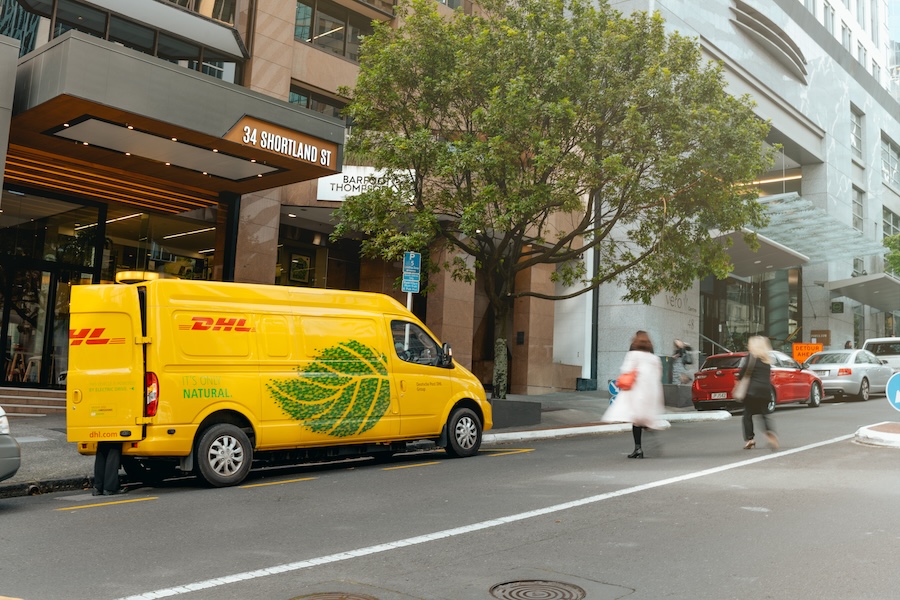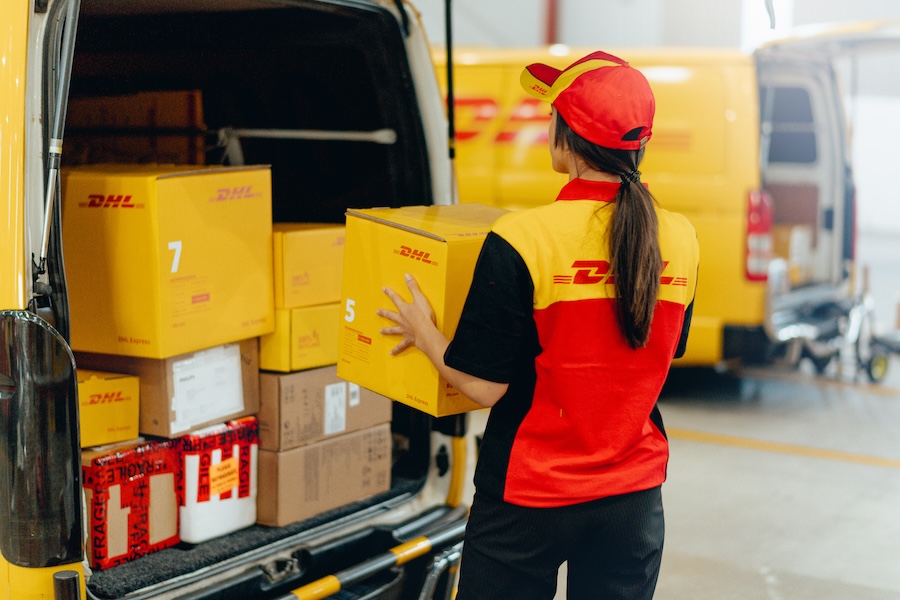Selina Deadman is the Vice President for the Commercial team, responsible for DHL Express in New Zealand since April 2012. She recently sat down with ExporterToday for a discussion on current export challenges, how New Zealand businesses can become more competitive globally, and the impact of going green.
Selina Deadman began her career with DHL Express 30 years ago in New Zealand operations. She has since worked with DHL in various commercial capacities throughout the DHL global network including in the US as Senior Director, Global Financial & Professional Services Americas, looking after strategic global accounts and managing a team of business development managers across the Americas.
With 30 years’ of experience and industry knowledge, Deadman has some great insights and advice for New Zealand businesses looking to successfully compete on the global stage.
30 years at DHL is an impressive stint, do you have a career highlight for your time at DHL?
DHL is very committed to developing its people so if you work hard, get involved in the business and are passionate about what you do it’s a great place to work. The highlights have definitely been my international career taking me all over the world, particularly based in our Asia Pacific and Americas regions where I was fortunate enough to work with some of our largest customers helping them grow their international sales and develop supply chain solutions to support their business growth. I have been fortunate to find an amazing company where I have had many opportunities to progress and develop my management skills through some great pointers and mentoring by DHL Express executives.
How are you best placed to assist local companies on the global stage?
I have the responsibility to ensure our team of DHL Certified International Specialists help our customers grow through our market-leading international service. The team is passionate about helping DHL customers succeed by guiding them into new markets to achieve international growth and maximise their cross-border potential.

Selina Deadman.
DHL Express focuses on international speed to market, it is important that our customers receive their shipments as quickly and as seamlessly as possible. We operate in over 220 countries and territories worldwide, allowing Kiwi customers to trust us to connect them to the world. We leverage our unrivalled global expertise and Customs know-how to keep customers’ shipments moving swiftly – we have the knowledge, award-winning people and the network to work with NZ companies to grow and expand their business to new countries.
What are some of the biggest challenges facing the global market currently?
The world has faced a series of unprecedented events over the last few years, with the Covid-19 pandemic and wars in Ukraine and Gaza following on the heels of the US-China trade war and the UK’s withdrawal from the EU. These disruptions, along with gradually rising geopolitical tensions, have caused caution for New Zealand exporters.
For Kiwi businesses looking to grow their export business globally, what advice do you have for them?
Researching where the international demand would be and having the right international shipping partner (like DHL) who can tailor a solution that matches your specific shipping needs and business priorities is critical. Documentation requirements vary from country to country, and your shipping partner is likely to have all the up-to-date knowledge and expertise required on all legal and regulatory standards.
What are some of the biggest local challenges hindering exporters when it comes to their global growth?
Our 2023 Export NZ DHL Export barometer highlighted that the business environment both at home and abroad remains tricky to navigate for New Zealand exporters, with increasing costs in NZ seen as a major barrier to exporting. With the rise in interest rates and the upward pressure on costs of doing business and living, has meant that exporters are certainly feeling the pressure at home.
In an attempt to ‘control the controllables’, Kiwi exporters responded that they are carrying more stock or raw materials on hand or changing logistics/shipping providers. However, Kiwi ingenuity is never far from the game, with over a third of respondents developing new products and services in an attempt to grow exports in 2024.
New Zealand has fallen 13 places to rank 43rd in the Global Connectedness Rankings. What is global connectedness, and why has New Zealand gone back in this regard?
The DHL Global Connectedness Report measures global connectedness. In simple terms, it is measuring how connected a particular country is with the rest of the world, determined by country-to-country movements or flows.
New Zealand going backward reflects the drop in trade and international passenger traffic. The survey showed New Zealand’s inflow of investment capital and information connectivity improved, but that was offset by weaker flows of people and trade, which appeared to be a hangover from the Covid-19 lockdowns.
Do you have any stats on key export/ import industries to watch in the local market?
81 percent of consumers said sustainability is an influence on their purchasing decisions. This statistic along with New Zealand Climate Standards now being a mandatory requirement for large organisations or, Climate Reporting Entities (CREs) to disclose climate-related risks and opportunities in their financial reporting, companies that fall into this category, should be looking at how they are directly investing into environmentally sustainable initiatives.

At DHL Express we launched GoGreen Plus which allows customers to reduce their carbon emissions by using Sustainable Aviation Fuel (SAF). This is a huge step forward in combating climate change and is a first for all global express carriers with DHL leading the charge. GoGreen Plus is the newest addition to DHL Group’s sustainability goal of achieving net-zero emissions by 2050.
Logistic industries are large contributors to carbon emissions by the very nature of their service. Hence you can see so much focus on sustainability in the future. While I have talked about SAF to replace traditional jet fuel, the future of transportation will go further than this, with electric transportation options. We have currently launched 10 electric vehicles to our New Zealand network, with the goal of having 60 percent of our last-mile vehicles electrified by 2030.
Furthermore, DHL launched the first-ever fully electric commuter plane “Alice” and has ordered 12 additional Alice e-cargo planes.
What excites you about the local market currently?
A couple of things come to mind, firstly that we are leading the market in NZ with our GoGreen+ solution, making us the largest purchaser of SAF globally and the only international logistics player who is helping customers to fast-track the reduction of their companies’ scope 3 emissions.
Secondly, the ever-changing landscape of the international trading environment. The business-to-business world is undergoing a period of intense transformation. Traditional methods of B2B operations – from sales to customer interactions; from fulfillment to order delivery – are changing rapidly. While the B2B world was already moving online, Covid-19 accelerated the process, meaning B2B transactions are becoming more data-driven and less dependent on traditional one-to-one sales activity. Our customers are reaching out and leaning on us to provide them with that competitive edge in a global market by supporting their business and providing insights that can create value in their international supply chain.




